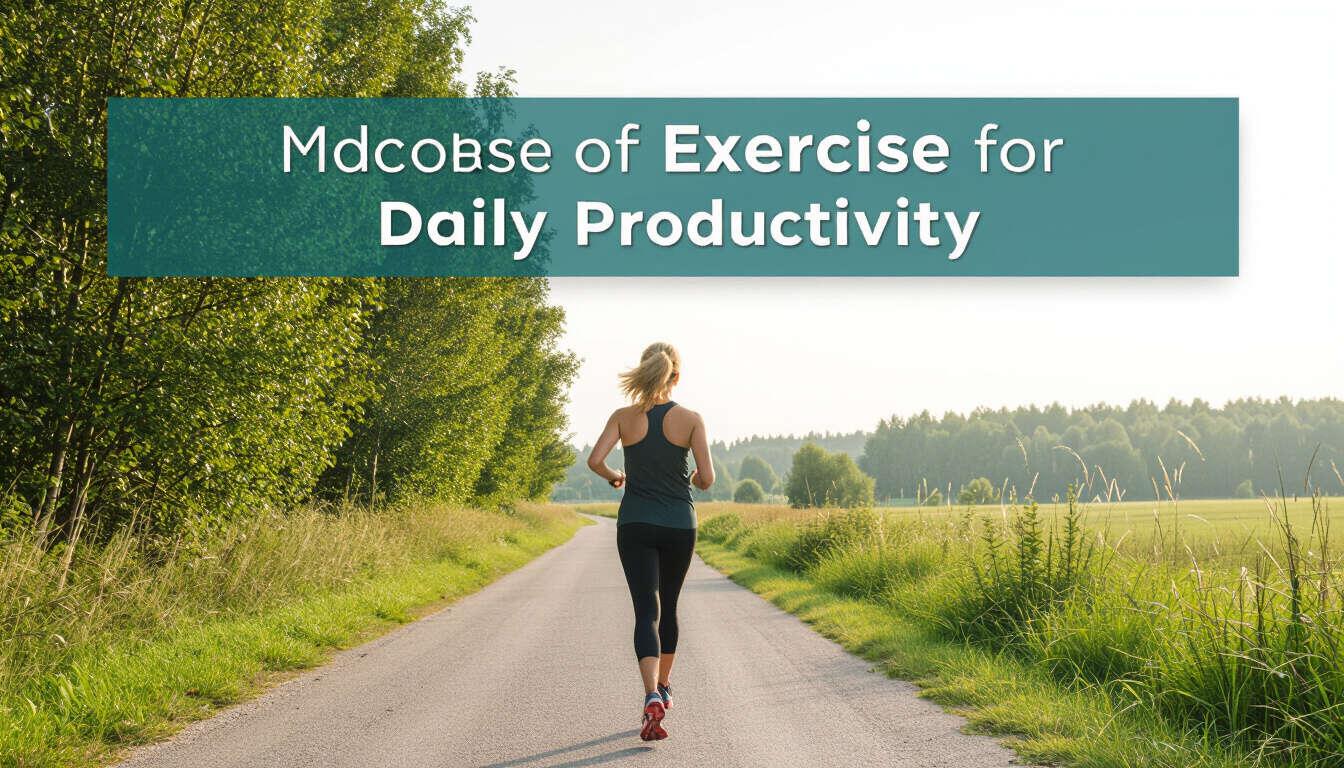The Link Between Exercise and Productivity
 by Shanie Goodwin
by Shanie Goodwin
Regular exercise offers proven benefits for productivity, including better focus and energy levels. Studies show that physical activity can enhance cognitive performance and reduce stress, making it a key strategy for professionals and students.

Exercise plays a significant role in improving productivity. For instance, engaging in physical activity can lead to sharper mental clarity. Exercise increases blood flow to the brain, which supports better concentration during work or study sessions.
One way to incorporate this into daily routines is through short, effective workouts. Research indicates that even brief sessions, like a 20-minute walk, can boost cognitive function. This makes it accessible for busy individuals who need quick strategies to maintain efficiency.
Consider the impact on energy levels. Productivity often suffers from fatigue, but regular movement helps combat this by promoting better sleep patterns. A study from a leading health journal found that participants who exercised moderately reported higher alertness throughout the day.
To make this practical, try simple routines. For example:
- Morning stretches to start the day with improved focus.
- Midday breaks for light activity to refresh the mind.
- Evening exercises to wind down and prepare for rest.
These habits draw from evidence in psychology, showing that physical exertion releases chemicals that enhance mood and motivation. Focus improves as a result, allowing for more efficient task completion.
Another angle is stress reduction. Daily pressures can hinder output, but activity serves as a natural counter. Findings from behavioral science suggest that regular exercise lowers cortisol levels, leading to calmer, more productive states.
For students, this means better retention of information during study periods. Professionals might notice enhanced decision-making in meetings. The key is consistency, as ongoing practice yields long-term gains in overall performance.
In practice, combining exercise with work schedules can be straightforward. Set aside time for activities that align with personal goals, ensuring they fit into tight timelines. Over time, these changes build a foundation for sustained efficiency.
Ultimately, the evidence supports integrating movement into everyday life. By doing so, individuals can achieve greater output without overwhelming their routines. This approach, grounded in research, offers a reliable path to enhanced daily performance.
